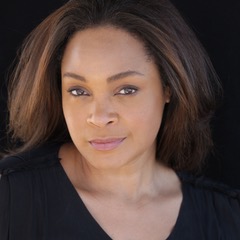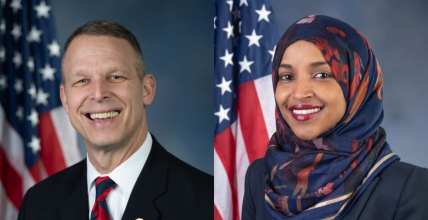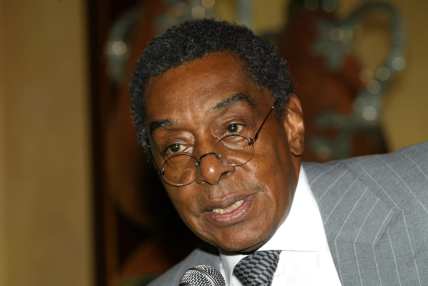Yes, Feb. 1 marks the start of Black History Month—but it’s also World Hijab Day
This year marks the 10th annual celebration honoring the hijab and combatting anti-Muslim sentiment, now recognized in over 150 countries.
“Hijab is our crown, not a crime.” That is the tagline of World Hijab Day, established in 2012 by Nazma Khan in an effort “to fight discrimination against Muslim women through awareness [and] education.”
Now in its 10th year, World Hijab Day is both a celebration and an invitation for “sisters in humanity” to also wear the headscarf known as the hijab as a show of support for Muslim women in the face of ongoing discrimination.
It’s “an all-inclusive celebration for non-Muslims and non-hijab-wearing Muslims alike to bring a greater level of cultural awareness and understanding, as well as international solidarity,” reads the movement’s Facebook page.

The need for that solidarity is real. While Islamophobia seemingly peaked in the aftermath of the Sept. 11 attacks, it hasn’t significantly waned in the intervening years. In fact, as ABC News reported during the 20-year commemoration of 9/11, anti-Muslim bias found new footing during the Trump administration.
“Islamophobia became a political tool, with some public figures, like former President Donald Trump and media commentators using the fear against Muslims and Arab Americans to rile up their bases.
…
“Anti-Muslim rhetoric was used against former President Barack Obama during both of his presidential campaigns, despite the fact that Obama is a Christian. Racist and xenophobic rumors about his religion and about his birthplace were used to stoke outrage and mistrust against Obama, weaponizing pre-existing fear about Muslims…Anti-Muslim sentiment continued during the 2016 election cycle, during which Islamophobic hate crimes surged again.”
Credit: ABC News
This now decades-long surge in anti-Muslim sentiment has put conservatively dressed Muslim women at particular risk, as those who wear hijab are naturally more conspicuous. They are often targeted and subject to negativity, ranging from microaggressions to outright verbal and physical attacks. World Hijab Day was created as a counterpoint — a space to both support and celebrate the women who choose to wear hijab as an expression of their faith and identity.
“My wearing a hijab has nothing to do with what other people think of me, what I think of men or what others think about the hijab in general,” writes motivational speaker Sana Khan in an op-ed for the movement’s blog. “My reasons for the hijab have been evolving over the years, from it being an identity of resistance to society who expect women to dress a certain way, to striving for complete submission to Allah and now, as an act of immense gratitude.”
For all of these reasons and the myriad misunderstandings non-Muslims have of the practice and its meanings, World Hijab Day matters.
“It shines a spotlight on the women that choose to wear hijab,” says Zubaidah Abdul-Hakim, the fashion designer behind Styled by Zubaidah in Newark, N.J., where she creates pieces for “the Modest Curvy Muslim Woman.”
“It shows the world that we are not just women that are veiled in silence but veiled in love and protection,” Hakim tells theGrio. “World Hijab Day is celebrated by Hijabi women from all over the world and our voices are necessary to end the stigma of oppression and to create our own narrative.”
Part of that narrative involves dispelling myths that Muslim women are inherently passive.
“I think a lot of people may have the misconception that hijab is a way to restrict how a Muslim woman is allowed to dress,” said Hakim, who proudly designs using bold colors and wild prints. “When people see me wearing Styled by Zubaidah, they often comment that they didn’t think Muslim women could dress in such clothing. Allah is beautiful and HE loves beauty, so we are told to beautify ourselves in our hijab.”
As for those intent on misunderstanding hijab rather than respecting it as a woman’s individual choice, Hakim said, “If you see a Muslim Woman wearing hijab it is not your job to convince her that she shouldn’t be veiled. Hijab is viewed a liberation to Muslim women. It allows us to feel secure and protected.
“For me, wearing hijab is an act of worship to God. It is a symbol of my devotion to God’s commandment that a Muslim woman’s beauty should be reserved for her family. I wake up every day and intentionally follow this command out of my love for HIM.”

Maiysha Kai is Lifestyle Editor of theGrio, covering all things Black and beautiful. Her work is informed by two decades’ experience in the fashion and entertainment industries, a love of great books and aesthetics, and the indomitable brilliance of Black culture. She is also the editor of the YA book Words of Change: Body.
Have you subscribed to theGrio podcasts “Dear Culture” or “Acting Up?”
TheGrio is available for FREE wherever you use the internet — on our new mobile App, Roku, Amazon Fire TV, and AppleTV! And a Black Podcast Network coming soon!
More About:Culture Watch Lifestyle Style








